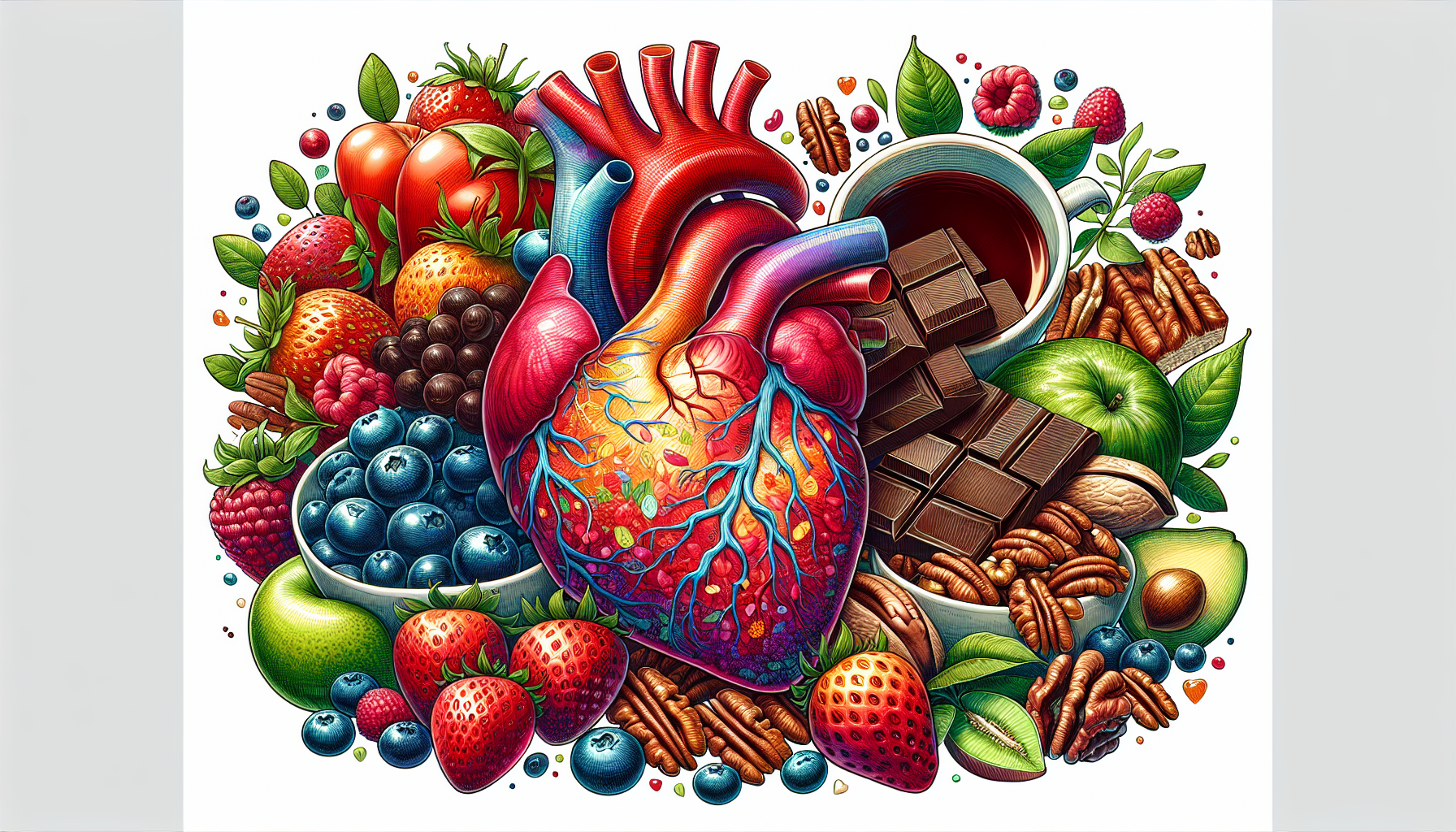In the pursuit of cardiovascular health, the role of antioxidants is often highlighted as a cornerstone of disease prevention. Antioxidants are molecules that neutralize free radicals, which are unstable compounds that can damage cells and contribute to heart disease and other health issues. Understanding the impact of antioxidants on heart health is pivotal for anyone looking to maintain or improve their cardiovascular system.
The Science Behind Antioxidants and Heart Health
At the molecular level, antioxidants work by donating an electron to free radicals without becoming unstable themselves. This action effectively neutralizes the free radicals and prevents them from causing oxidative stress, a condition that has been linked to various chronic diseases, including heart disease.
Oxidative stress results from an imbalance between free radicals and antioxidants in your body. This imbalance leads to the oxidation of low-density lipoprotein (LDL) cholesterol, which is a critical step in the development of atherosclerosis, a condition characterized by the buildup of plaque in the arteries. These plaques can reduce blood flow or break off and cause a heart attack or stroke.
Incorporating antioxidants into your diet is a natural way to bolster your body’s defenses against these harmful processes. Foods rich in antioxidants include fruits and vegetables, nuts, seeds, and whole grains. Specific antioxidants beneficial for heart health include vitamin C, vitamin E, beta-carotene, and minerals such as selenium.
For a comprehensive understanding of how antioxidants fit into the broader context of cardiovascular health, Avix Health’s article on cardiovascular health provides valuable insights.
Antioxidant Sources and Their Benefits
There are numerous dietary sources of antioxidants, each with unique benefits:
- Fruits and Berries: Blueberries, strawberries, and other berries are loaded with vitamin C and flavonoids, which are potent antioxidants.
- Vegetables: Leafy greens like spinach and kale, as well as bell peppers and tomatoes, are high in vitamins A, C, E, and other antioxidants.
- Nuts and Seeds: Almonds, walnuts, and flaxseeds contain vitamin E, which protects cells from oxidative damage.
- Whole Grains: Oats and brown rice provide selenium, which is essential for the proper function of antioxidant enzymes.
Incorporating a variety of these foods into your diet ensures a wide range of antioxidants that work in different ways to protect your heart.
The Role of Supplements in Antioxidant Intake
While a balanced diet is the best way to get the antioxidants your body needs, supplements can also play a role, especially for individuals with dietary restrictions or increased oxidative stress. Coenzyme Q10, for example, is an antioxidant supplement shown to have heart health benefits, particularly for those taking statin medications.
For further reading on the relationship between Coenzyme Q10 and heart health maintenance, consider Avix Health’s dedicated article.
Antioxidants and Exercise: A Synergistic Relationship
Engaging in regular physical activity is another effective strategy for boosting your body’s antioxidant defenses. Exercise stimulates the production of natural antioxidants in the body, enhancing protection against free radicals. High-intensity interval training (HIIT), in particular, has been recognized for its cardiovascular benefits.
Learn more about optimizing cardiac health through exercise by reading Avix Health’s article on High-Intensity Interval Training.
External Resources for Further Research
For those interested in a deeper dive into the science of antioxidants and heart health, the following external resources provide valuable information:
- The American Heart Association’s recommendations on antioxidants and healthy eating.
- A review of antioxidants and cardiovascular diseases published by the National Institutes of Health.
- The role of oxidative stress in cardiovascular disease as explored by the American Heart Association.
- An analysis of the benefits of HIIT on cardiovascular health from ScienceDirect.
- The Linus Pauling Institute’s Micronutrient Information Center provides in-depth information on micronutrients and heart disease.
Best Practices for Antioxidant Intake
To maximize the benefits of antioxidants for heart health, consider the following best practices:
- Variety in Diet: Consume a wide range of antioxidant-rich foods to cover the spectrum of nutrients.
- Whole Foods Over Supplements: Aim to get your antioxidants from foods rather than supplements, unless advised by a healthcare provider.
- Regular Exercise: Combine a diet high in antioxidants with regular physical activity to enhance your body’s natural defenses.
- Avoid Smoking and Excessive Alcohol: These habits can increase oxidative stress and reduce the effectiveness of antioxidants.
Conclusion
Antioxidants play a critical role in preventing cardiovascular disease by combating oxidative stress and protecting the heart. Through a diet rich in fruits, vegetables, nuts, and whole grains, along with regular exercise and lifestyle management, individuals can significantly reduce their risk of heart disease.
By understanding and applying the principles outlined in this article, you can take proactive steps to support your cardiovascular health and overall well-being. Remember that heart health is not just about one nutrient or lifestyle choice; it’s the synergistic effect of a holistic approach that includes diet, exercise, and informed lifestyle decisions.



